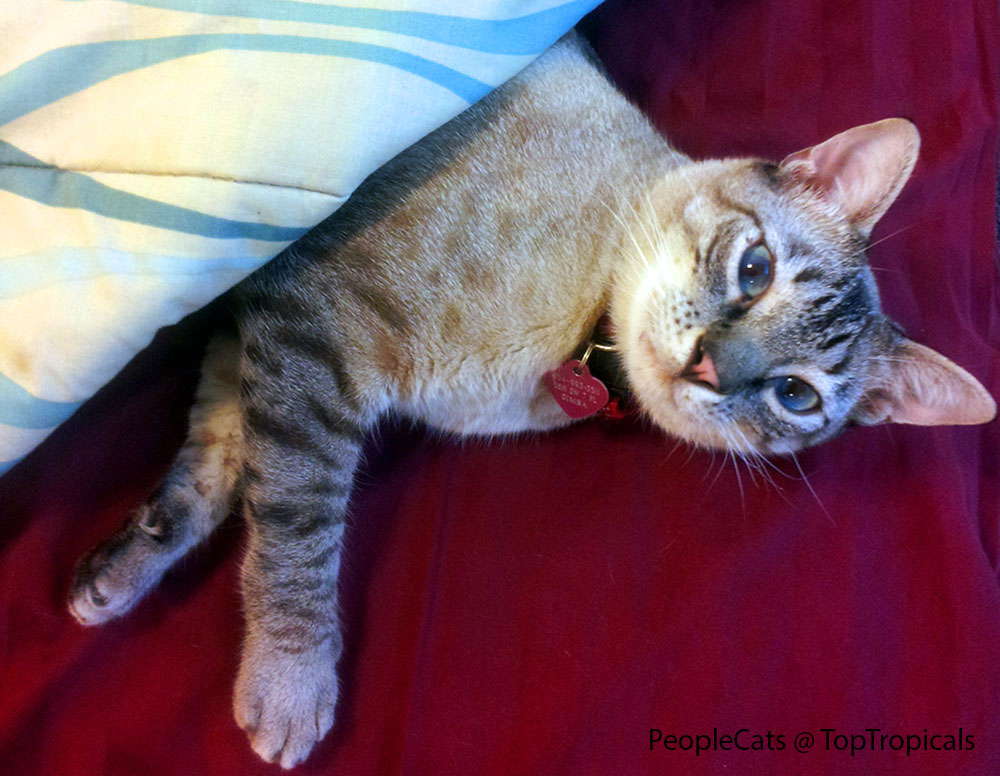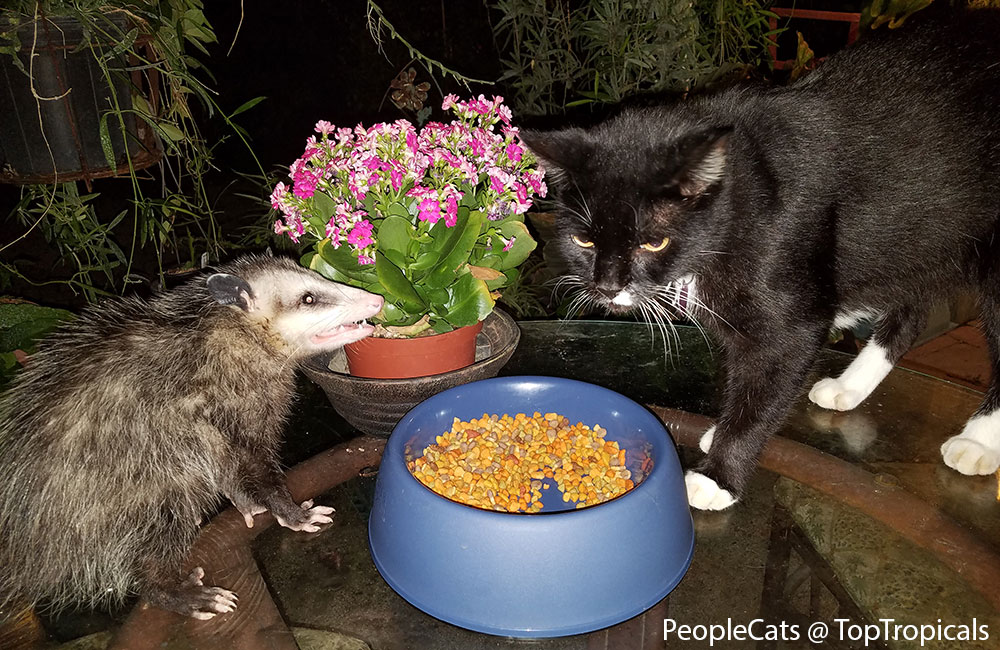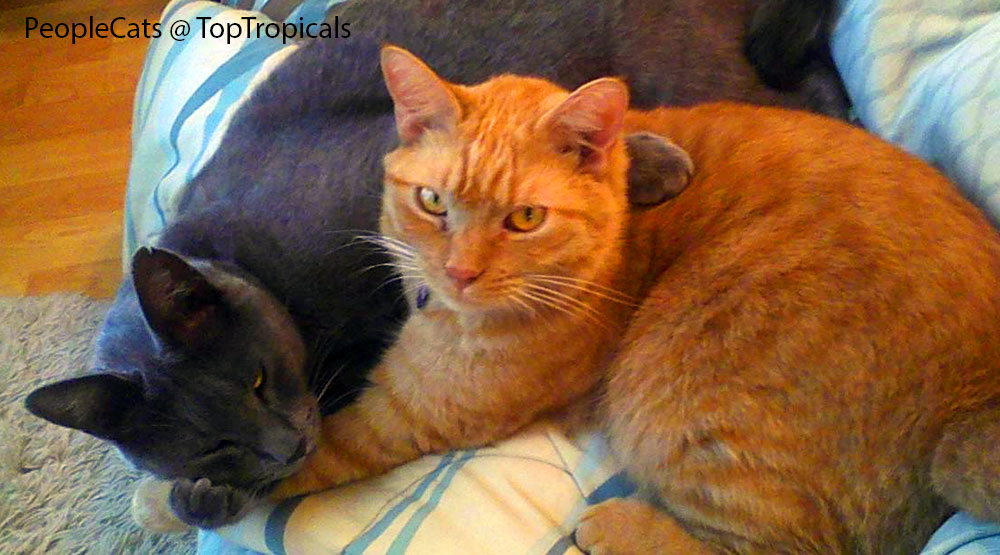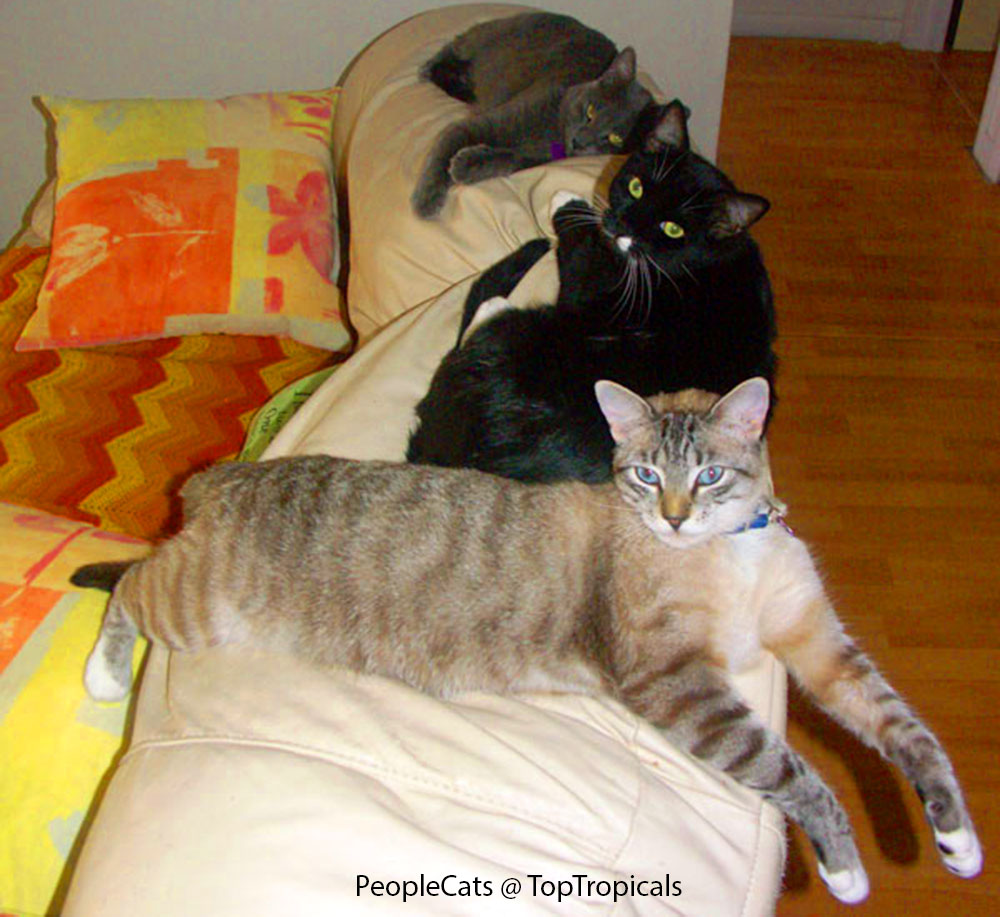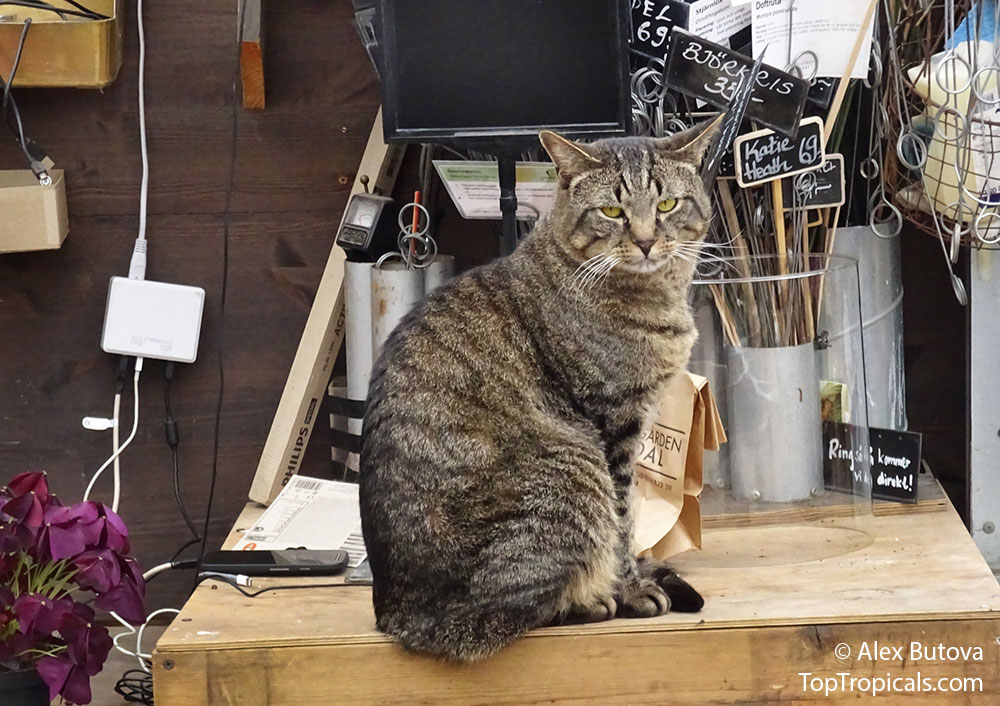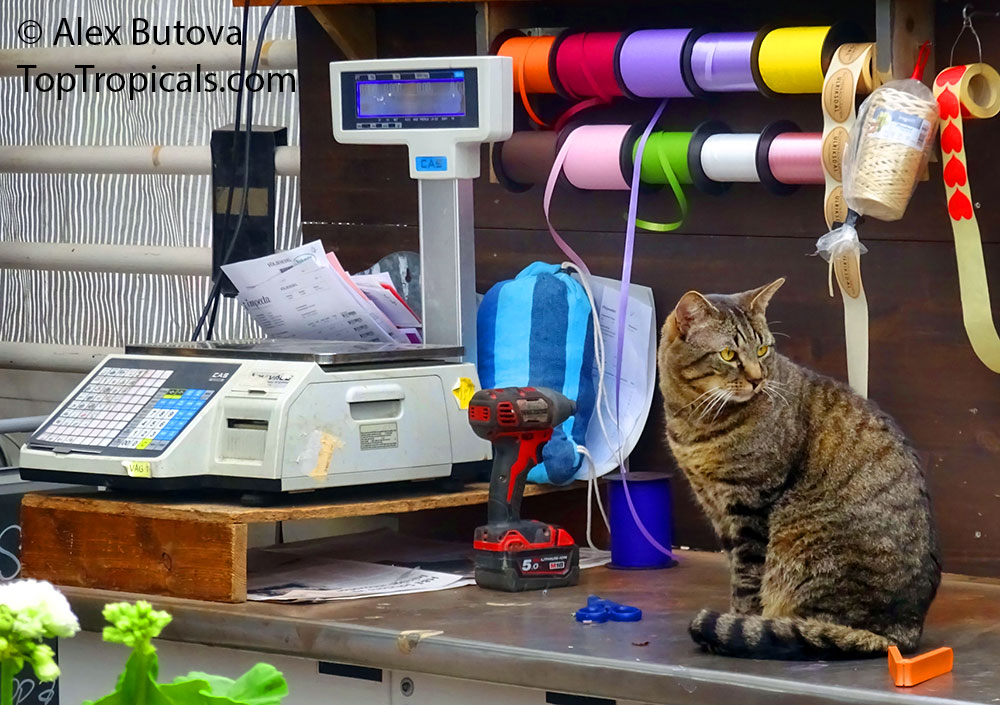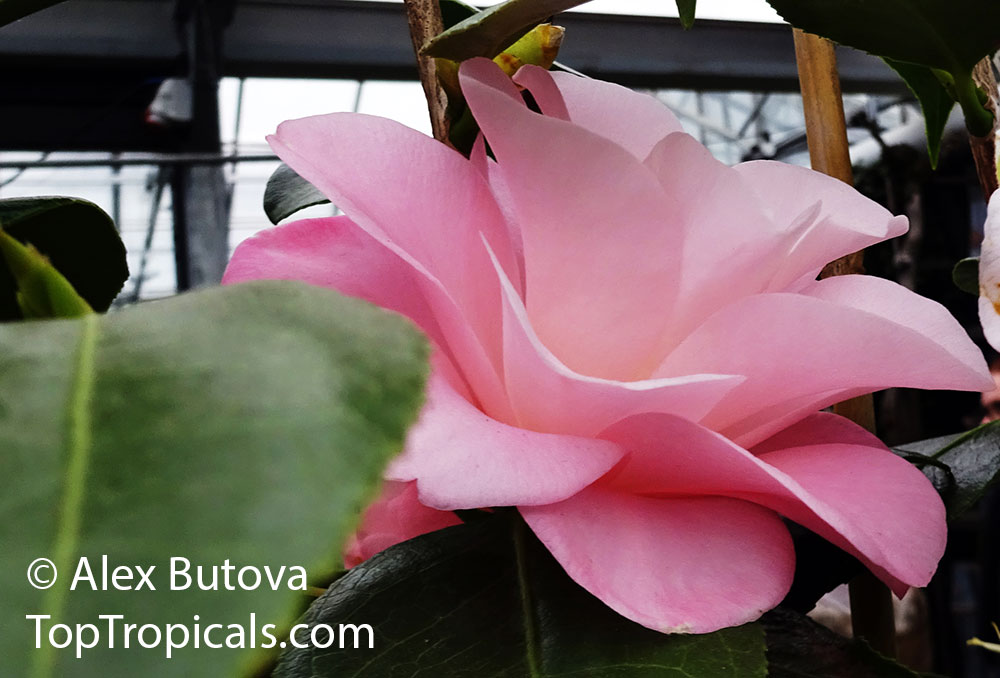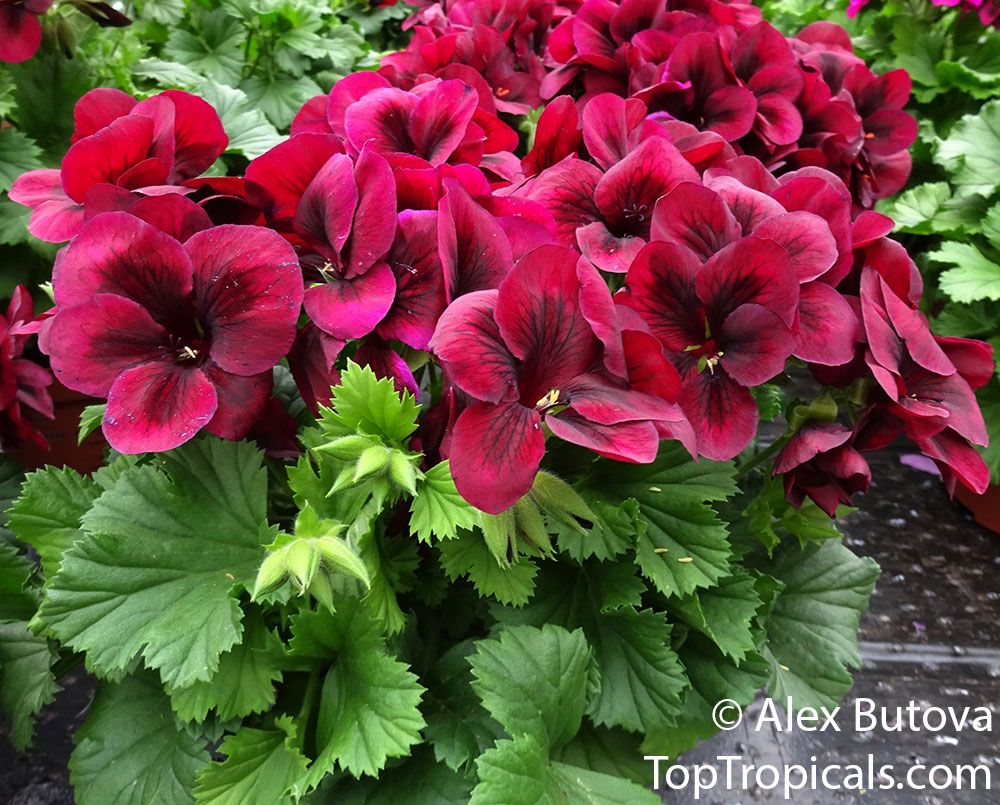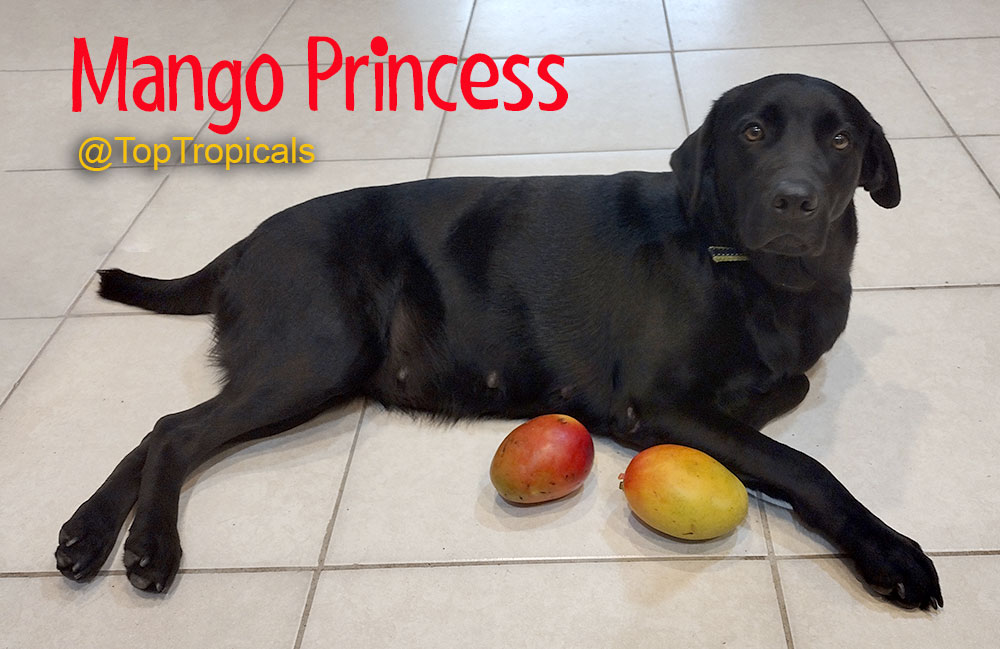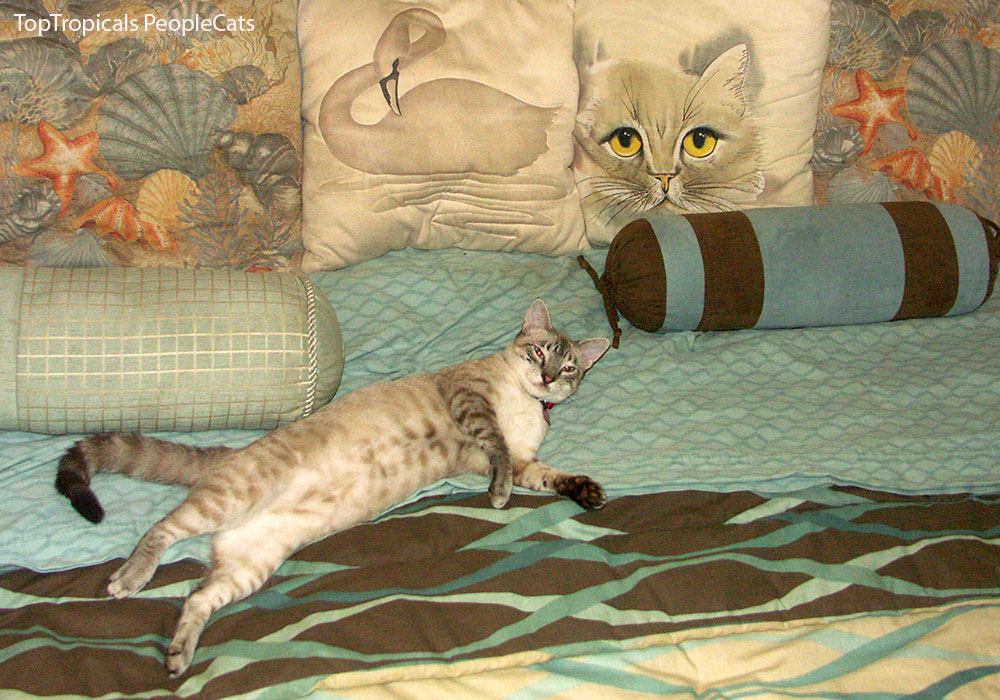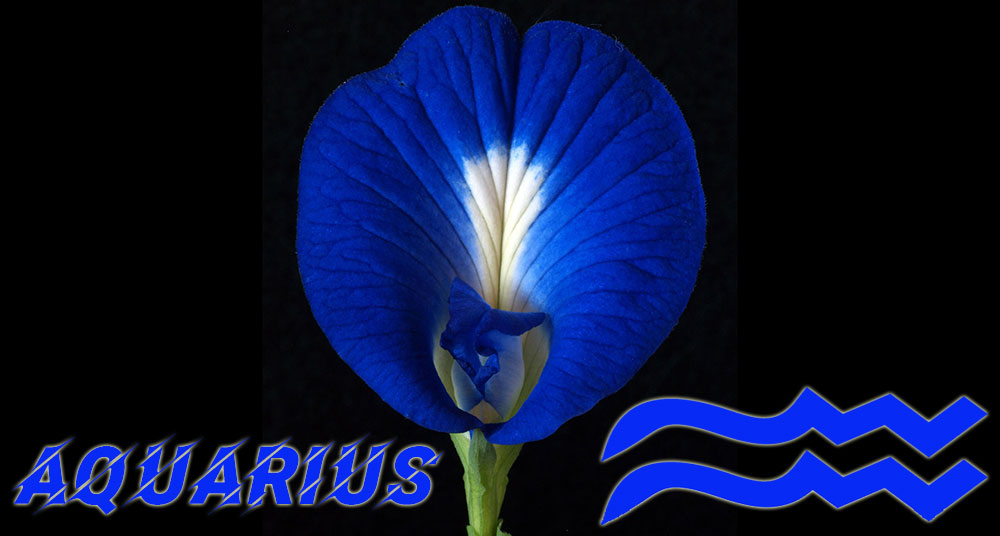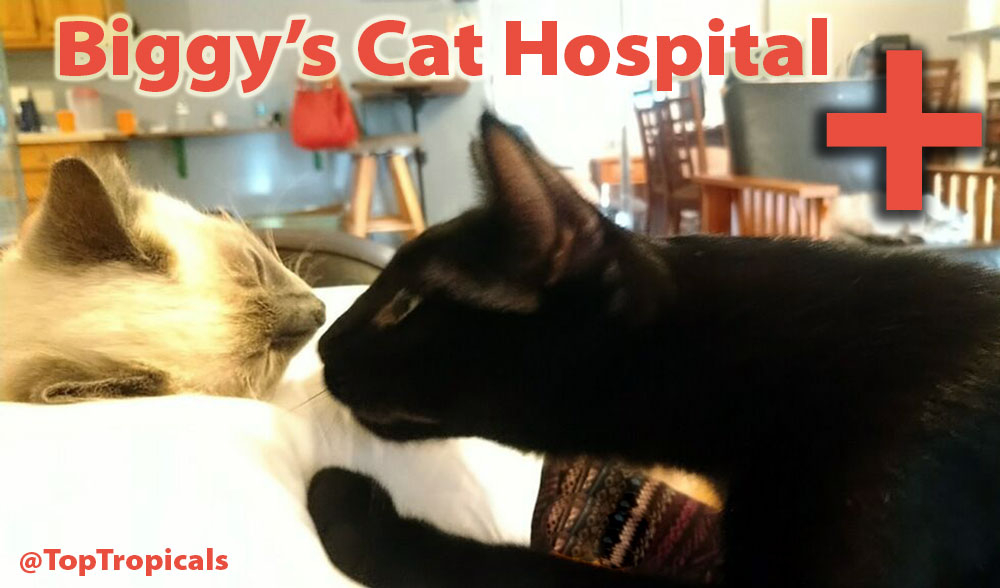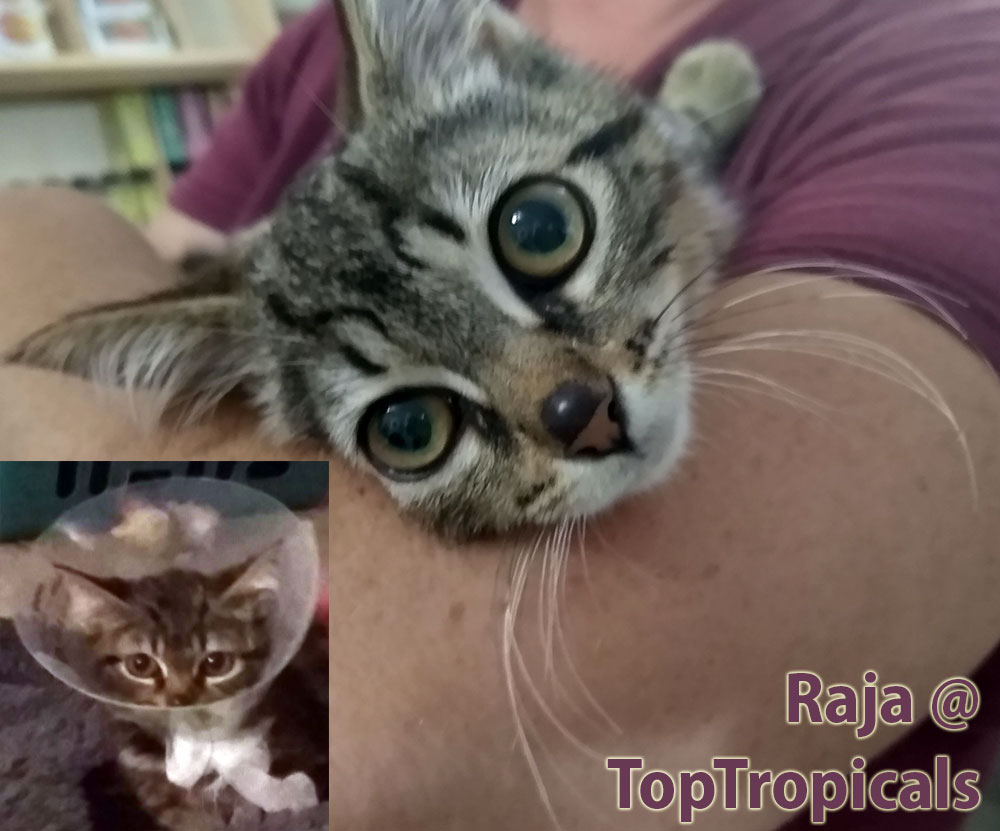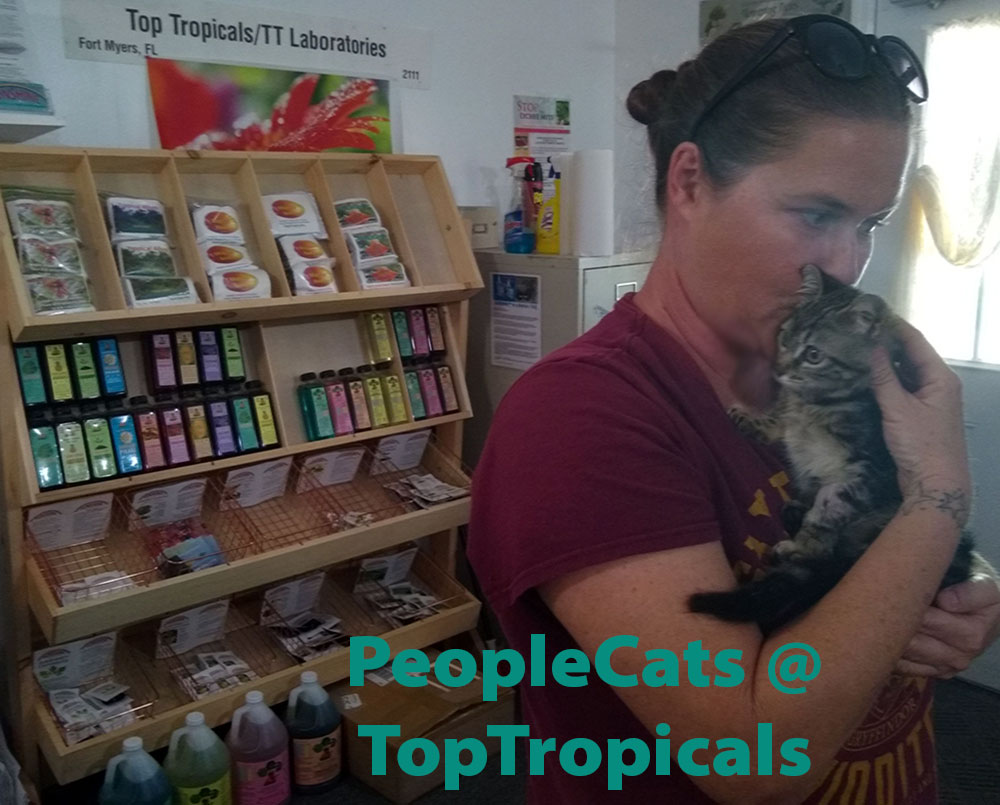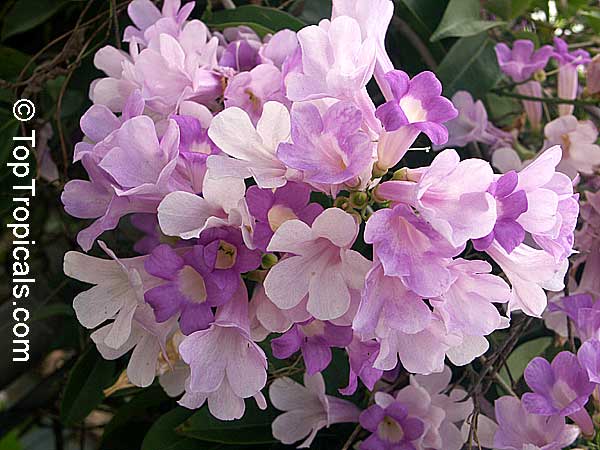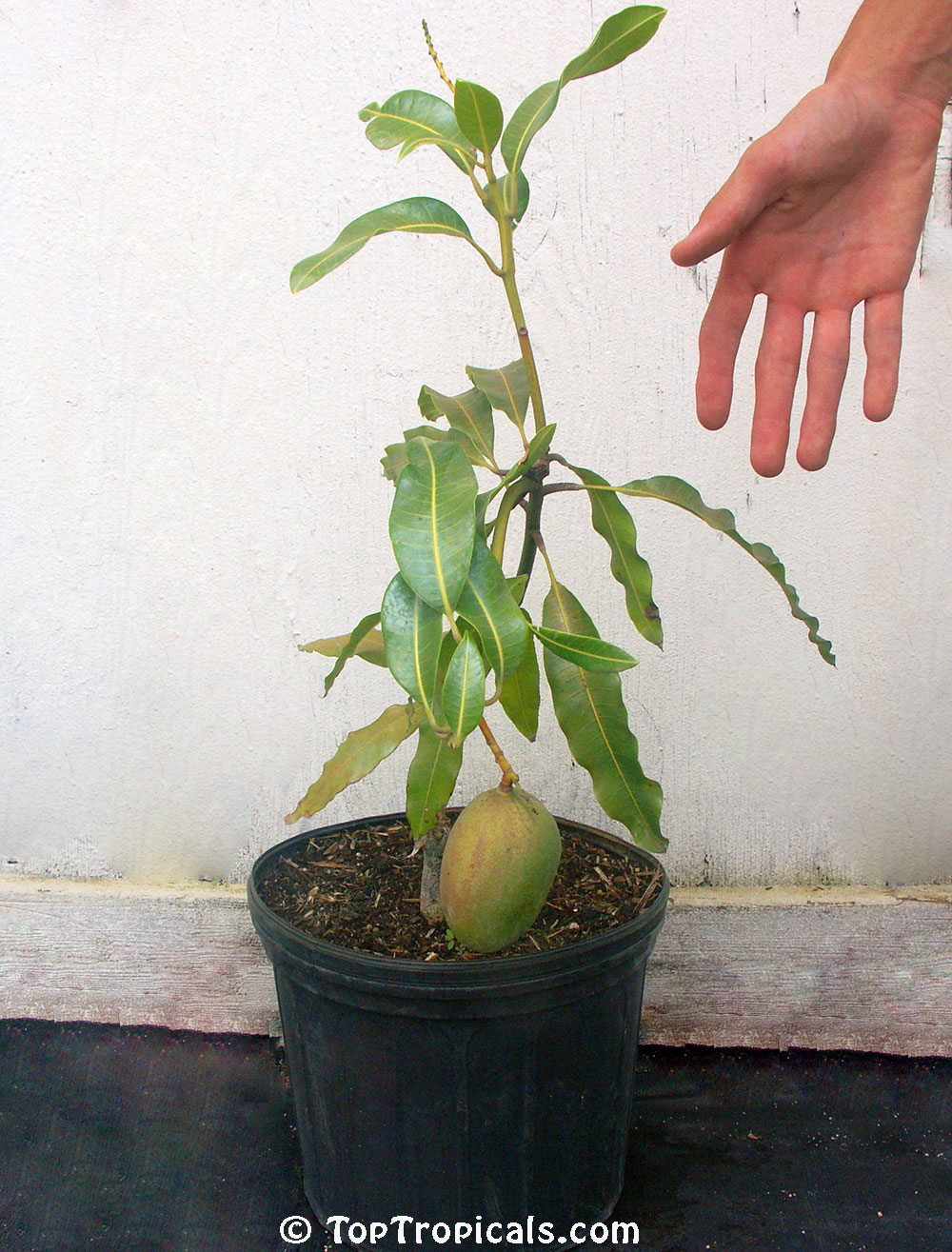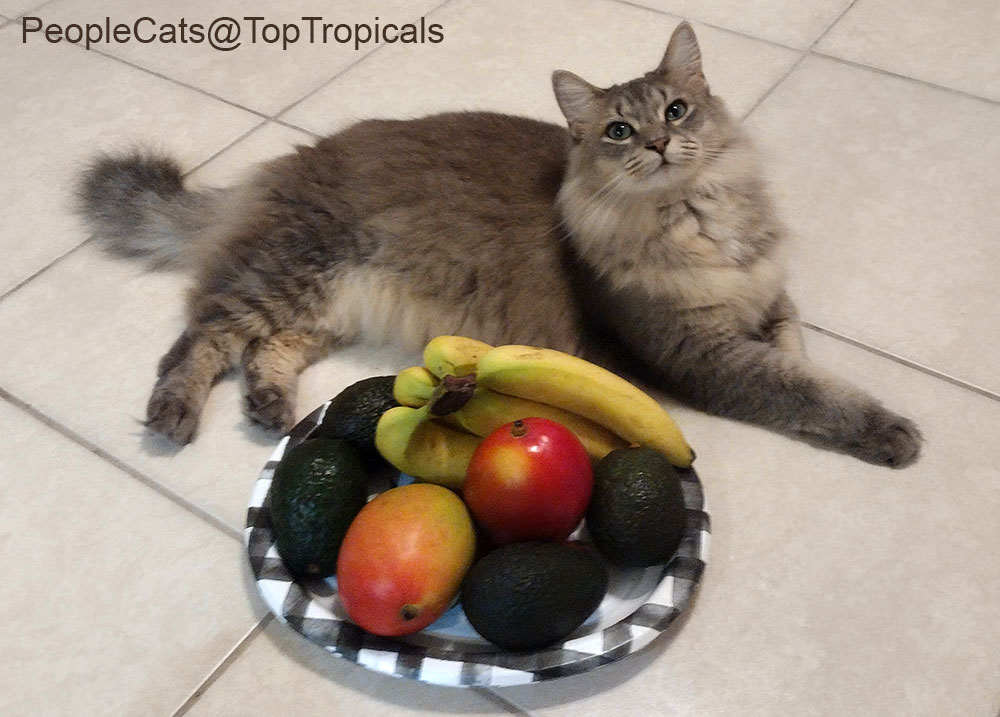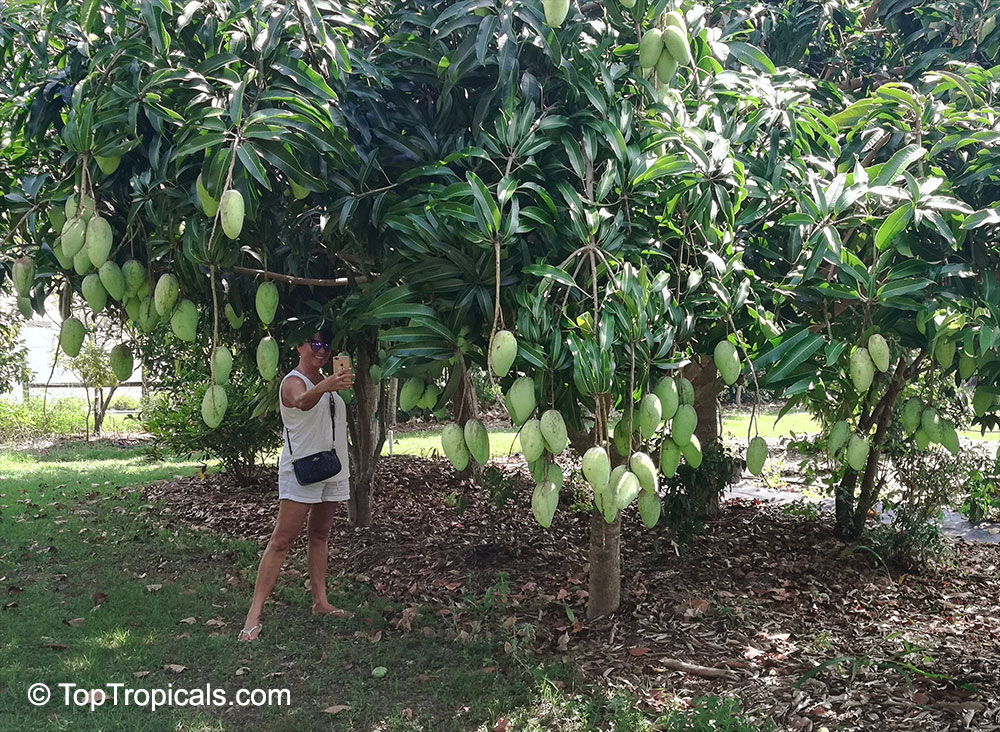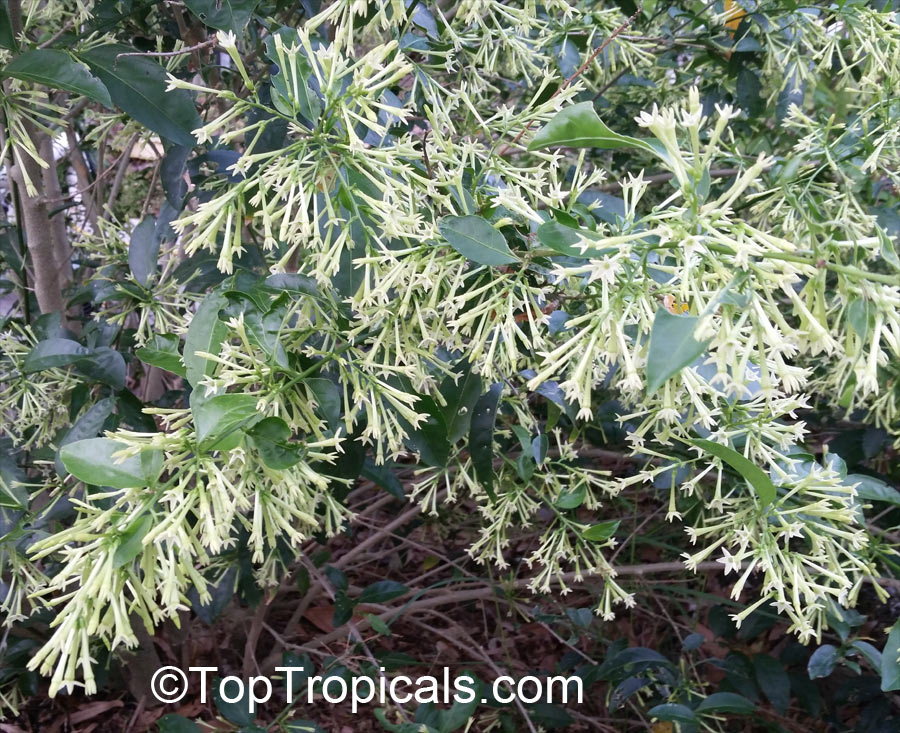Garden Blog - Top Tropicals
Date:
PeopleCats saving us from COVID-19!
Cat owners have higher immunity for COVID-19?
In our previous newsletter, we were talking about cats fighting the coronavirus and how to help them to recover.
The research made by Sabina Olex-Condor, a Polish doctor who works in a
clinic in Madrid, showed that due to cross-immunity (cats are a known reservoir
of coronaviruses) cat owners have milder sympthoms of COVID-19! Perhaps this
is due to the fact that in a cross-reaction antibodies are produced to the
virus, and owners of cats are more protected from COVID19... Read more)
Now that quarantine has been introduced almost universally because of
coronavirus, dog owners are also in a better position - they can officially go
outside for a short while. But the benefit of dogs (and other pets) is not only
that. Scientists from the Italian city of Catanzaro found in the course of
the study, that those who have a four-legged pet, have very mild symptoms of
the COVID-19. A similar effect was observed in those in contact with cattle...
To find an explanation for this phenomenon, the researchers compared viruses.
It turned out that the disease of bulls, cows and other cattle is similar to
Chinese coronavirus by 38.4%, and the virus of dogs by 36.9%. This means
that owners of animals already have some kind of immunity. So the owners of cats
and dogs, as a rule, tolerate coronavirus easier or completely asymptomatic.
Read more...
Stay safe and healthy with your PetPeople!
TopTropicals PeopleCat Club
Thank you everybody for supporting us in helping PeopleCat Community!
Make
your kind donation today and receive a surprise gift from us. Every little
bit helps! Thank you and God bless you and your pets!
Date:
Meet PeopleCats of TopTropicals. Cat of the day: Anders from the King's Palace
We receive many letters from customers who enjoy our Cat of the Day column, including those who want to share their cat stories with us! Today's guest in PeopleCat studio -
Cat Anders. Anders lives in Stockholm. He is a manager of a Garden
Center located in one of the King's properties - Palace Ulriksdal. He has so many beautiful flowers in
stock! Lots of orchids, camellias, and showy colorful annuals.
Anders' favorite spot is to sit by the cash register where he can closely
monitor every payment transaction. Sometimes he takes a walk around the
premises to take care of security issues and to stay on top of his inventory
control. During lunch time Anders visit Flower Cafe nearby, to make sure visitors'
dogs behave properly... Yes, dogs and cats are welcomed in!
TopTropicals PeopleCat Club and Zoo
Thank you for supporting us in helping PeopleCat Community!
Make
your kind donation today and receive a surprise gift from us! Every little
bit helps. Thank you and God bless you and your pets!
Date:
Mango: Fruit of Love and Friendship
In the photo: Mango Princess reincarnated. Mango is a Lab dog that got pregnant and lost her home... But she found her new life at Top Tropicals PeopleCats community. And she brought us a basket of happy puppies!
According to Hindu folklore, there was once a Sun Princess who was cruelly burned to death by a wicked sorceress... However, from the ashes of the princess, a mango tree sprung up, and the Emperor was immediately enchanted by the beauty of its blooms. The fruit that followed was equally as captivating and when the ripe mangoes fell from the tree, the Sun Princess was reincarnated.
Starting that moment on, the mango became a symbol of love and affection in India, and offering someone a basket of mangoes was seen as a gesture of friendship.
Today, mangoes are widely regarded as the most consumed fruit in the world, with approximately half of all tropical fruits produced globally being mangoes.
Date:
Cat
Zodiac
Aquarius Cats 1/20-2/18
By Alex Butova, the Witch of Herbs and Cats
The astrological sign of a cat can be determined by either their date of birth or adoption, as adoption is often considered a second birth for cats. With this information, one can discover the astrological traits that describe the cat, such as their independence, diva-like tendencies, sense of humor, intelligence, and more. Additionally, it's also important to consider the astrological relationship between cats and plants...
The Aquarius cat is a very popular purrson. These cats have a unique
ability to form a network of friends and allies, not just among other cats, but
also with dogs, koi-koi fish in the ponds, goldfish in aquariums, parrots,
and other pets and creatures in the neighborhood. The humans in their lives are
also fully integrated into this pack, and the Aquarius cat takes great pride
in being a central figure and leader within this community. They view
themselves as the "Sheriff of the regional district," commanding respect and
authority among their fellow creatures, humans including...
...Tired of the hustle and bustle of society, Aquarius cats often seek out
secluded places surrounded by tall grass and fragrant plants, which can even
be a simple pot with your favorite plant...
CONTINUE READING >>
Date:
Healthy Plants: Q&A from Mr Booster
Meet our new Booster Guy
Plants need food too! Our line of Complete Plant Nutrition system - Sunshine Boosters - will give your plants exactly what they need, and nothing they don't! The boosters are easy to use, and -
ON SALE NOW with FREE shipping
- as a part of our 4th of July specials!
We have a new team member to help you learn more about Sunshine Boosters and how they can make your plants grow healthy and
fast.
Meet
Ed Jones - our new Booster Guy! Ed will be your contact for all Sunshine
Boosters questions, he will help you with fertilizer product selection and
ordering.
Soon we will introduce some new fun stuff... including: new advanced formulas, and cool electronics for ultimate control of your plant collections, gardens, greenhouses, and groves... Stay connected!
MORE ABOUT ED >>
Meet Ed's serious Booster People: Roxy and Delilah
Date:
PeopleCats of TopTropicals. Cats of the day: Biggy's Cat Hospital
Biggy checking on patient Abu when he couldn't walk
During these challenging times for the whole planet, we receive kind letters from our customers checking on how our PeopleCats are doing, especially those that previously were ill. And since we promised to follow up on everyone, including heart-breaking story of Raja and Abu, today's report is about everybody's progress!
As we mentioned in our previous newsletter, several cats in TopTropicals
Cat Sanctuary had a coronavirus (we call it COVID-Cat-20), or simply a cat respiratory infection. Chiefy, Snitch, Marco and Biggy had it really bad, but some other PeopleCats surprisingly didn't
get it! Just like with humans. Lucky King didn't have a single sneeze!
Finally, everybody has recovered by now, but it has been a very stressful
couple of weeks for us, considering limited vet availability at this stay-home
time. On top of that, Lil S had an abscess and was also contained in a home hospital, away
from flu-quarantined PeopleCats. Our homes become real cat hospitals!
We are thankful to our customers support, especially Silvia who made
several donations for our PeopleCats, and also recommended antiseptic pads - those worked great for Lil S!
Abu and Raja's adventures were not over... After 2 weeks of seeing a
vet treating their infections and injuries, they got worse... Then after a
couple of weeks in another hospital (and a couple thousand more in bills) we were
suggested to put them down as hopeless since they would never walk again...
But Kristi did not want to believe it, she did not give up! The kittens heard
her. They won. Today, they are all better, walking, jumping and playing!
Thank you Kristi!
Never give up hope!
Stay safe and healthy with your PeoplePets!
TopTropicals PeopleCat Club
Thank you everybody for supporting us in helping PeopleCat Community!
Make
your kind donation today and receive a surprise gift from us. Every little
bit helps! Thank you and God bless you and your pets!
Date:
How to get rid of bad luck:
The story of the Garlic Vine
by Alex Butova, the Witch of Herbs and Cats
Are you a vampire? If not, then this is your Plant! Mansoa alliacea, or Garlic Vine, is a truly amazing plant. There are
two special features that make it so unique...
...First, the flowers start off deep lavender with white throat and change
to a lighter shade of lavender with age. Eventually fading to almost white,
and you will see three different color of flowers at the same time on the
plant. It's fantastic!...
...Secondly, the small of the leaves makes it a conversation piece: crushed
leaves smell like garlic...
...The plant is said to help get rid of bad luck and is a favorite with
hunters. Some Amazon natives offer their dogs a brew of this botanical to ensure
success during the hunt. Up until now, most consider the plant to be magical
or spiritual and they hang bunches of the leaves around their home for good
luck or in order to drive away evil spirits...
CONTINUE READING >>
Date:
URBAN TROPICAL GARDENING:
10 secrets of successful Container Mango growing on a
balcony.
Q: I live in Miami in apartment on a second floor, and I have a balcony with SE exposure. I wonder if I can grow a mango tree in a pot? Will it fruit for me? I recently moved to South Florida and I don't know much about tropical plants; but I tasted real fiberless mangos from someone's garden - it was so delicious and different from those in the grocery store. I wonder if I can have a fruiting tree on my balcony? And if yes, how do I plant and take care of it?
A:
Yes, you can! Here is what you need to do:
1) Temperature. You are lucky to live in Tropics,
keep it on a balcony year round.
2) Light. Position the pot in a spot with the most
sun exposure. Mango trees can take filtered light too, but
the less sun, the less fruit you will get.
3) Soil and Container. Use only
well drained potting mix. Step up the purchased
plant into next size container (3 gal into 7 gal, 7 gal
into 15 gal). When transplanting, make sure to keep growth
point (where roots meet the trunk) just at the top of the
soil. Covering base of the trunk with soil may kill the
plant.
4) Water. Water daily during hot season, but only
if top of soil gets dry. If it still moist, skip that day.
Mangoes (unlike
Avocados!) prefer to stay on a dry side.
5) Fertilizer. Use
balanced fertilizer once a month, 1 tsp per 1 gal of
soil. Do not fertilize during fruiting - this may cause
fruit cracks.
6) Microelements. Apply
SUNSHINE-Superfood once a month. This will help your
mango healthy, vigorous, and resistant to diseases. Use SUNSHINE-Honey to make your
fruit sweeter.
7) Insect control. Watch for scales and mealybugs,
clean with solution of soapy water + vegetable oil (may
need to repeat 2-3 times with 10 days interval), or with
systemic insecticide like imidacloprid only as needed (if
non-harsh treatment didn't help). Most Flea shampoo for
dogs contain that chemical, you may try that shampoo
solution.
8) Trimming. Once potted, do not remove leaves
that are discolored or have spots until new growth
appears. Dark dots on mango leaves, especially in humid
climate like Florida, may be signs of fungus. Treat with
fungicide according to label, and remove only badly
damaged leaves. Trim crown as needed after flowering and
fruiting (by Fall). Train into a small tree, and you may
remove some lower branches eventually.
9) Flower and fruit. Mangoes are winter bloomers
with bunches of tiny flowers coming in thousands. Many of
them set fruit (if pollinating insects present). Keep in
mind that young trees can only bare a few fruit. Normally
a tree will drop excessive fruit and keep only a few that
it can manage. To save the young tree some energy, remove
fruit if too many and leave only 2-3 for the first year.
It will pay you next year with more abundant crop.
10) Variety. Last but not least: Choose the right
variety for container culture! Pick from "condo" dwarf
varieties such as Icecream, Nam Doc Mai, Carrie, Cogshall, Julie, Fairchild, Pickering, Graham, Mallika, and a few others -
check out Mango Chart pdf
and full list of our Mango varieties.
Date:
Benefits of growing your own tropical fruit
"The fruit of the mango tree is no longer forbidden.
Indeed, it has been recommended to me by the physicians as an antidote to the
plague."
- Louis IX, King of France -
Q: Why do you want to grow your own tropical fruit tree?
A: Growing your own tropical fruit tree can have many benefits. Here are a few reasons why someone might choose to grow their own tropical fruit tree:
1. Fresh, flavorful fruit: When you grow your own tropical fruit tree, you have access to fresh, flavorful fruit that you may not be able to find at your local grocery store. Tropical fruit, like avocado, mangoes, papayas, and passionfruit, jackfruit, Dragon Fruit, Annona have a short shelf life, and the fruit you find at the store may have been harvested weeks ago. When you grow your own fruit tree, you can pick the fruit when it's fully ripe and enjoy it at its peak flavor. Besides, some rare fruit like Akee or Sapodilla simply never offered from the store.
2. Environmental benefits: Growing your own fruit trees can have environmental benefits. Trees absorb carbon dioxide from the air and release oxygen, which can help reduce your carbon footprint. Additionally, growing your own fruit trees reduces the need to transport fruit long distances, which can help reduce greenhouse gas emissions.
3. Cost savings: Depending on where you live and the availability of tropical fruit, growing your own fruit tree can be a cost-effective way to enjoy your favorite tropical fruits.
4. Gardening and outdoor hobby: Growing a fruit tree can be a fulfilling and rewarding outdoor hobby. It can also be a great way to teach children about where their food comes from and the importance of taking care of the environment.
Overall, growing your own tropical fruit tree can be a great way to enjoy fresh, flavorful fruit, reduce your carbon footprint, save money, and enjoy a fulfilling outdoor hobby.
In the photo: Mango tree in Top Tropicals garden.
Date:
True love of Night Blooming Jasmine
By Onika Amell, tropical plant specialist
Q: I live in New Cumberland, West Virginia. I love the smell of Night-Blooming jasmine. Is it possible to grow it in the northern panhandle of West Virginia? Do I have to plant it every year or do I keep it in a pot and take it inside during the winter months?
A: Technically, Night Blooming Jasmine is not a true jasmine
(those plants belong to Oleaceae, or Olive family). Night Blooming Jasmine
belongs to the Solanaceae family, also known as the Nightshade or "Potato" family
of plants. Yes, this sweet fragrant flower called Jasmine for its perfume is
related to potatoes and tomatoes!
Night Blooming Jasmine - Cestrum nocturnum - is loved by many gardeners for its beautiful
fragrance at night. It is one of the most fragrant tropical evergreen shrubs
available. Cascading clusters of tiny, tubular pale yellow to white flowers open at
night and release a heavenly fragrance throughout the garden, especially on
warm summer evenings. The fragrance is much lighter during the day.
Night Blooming Jasmine is grown year-round in zones 9-11. It is at its
happiest in a sunny to a partially sunny spot in your garden in well-drained soil
but can be grown in cooler climates as a container or greenhouse plant.
You would absolutely be able to enjoy this plant during the warm months
in West Virginia, but it will most certainly not survive outside during the
winter. You will have to bring it inside. Take it outside again only once you
are confident there is no more possibility of frost. When grown indoors, be
sure to give it the sunniest, South facing window in your home. When grown in
a container, you will need to re-pot it every two to three years so it
doesn't become root-bound.
For those who are lucky to live in frost-free areas, in ideal growing
conditions outside, it can easily reach 8 feet with a spread of 5 feet. It has
a lovely informal look that can soften a more manicured garden. Add organic
matter to the planting hole when you plant to enrich the soil around the root
ball. Water well in the summer, but allow them to dry out a bit between
watering in the winter. Plant this Jasmine near pools, porches, doors, windows,
and walkways where its lovely fragrance can be enjoyed. The shrub is also an
excellent plant for privacy hedges and screens. When grown as a hedge, plant 3
feet apart.
Trim lightly after a bloom cycle to shape and then do a hard pruning in
fall or spring to control the size of this plant. Fertilize 3 times a year -
in spring, summer, and autumn - with a good quality granular fertilizer.
Recommended fertilizers:
Pink N Good Daily Plant Food - Flower Booster
Tropical Allure - Smart-Release Booster
Interesting facts:
Night-blooming jasmine is an excellent mosquito repellent. The powerful
scent of the flowers attracts moths and bats that feed on mosquitoes and
other small insects.
The flowers of the Night Blooming jasmine are widely used in India and
other countries of South Asia for perfumery, medicinal applications and in
religious ceremonies.
